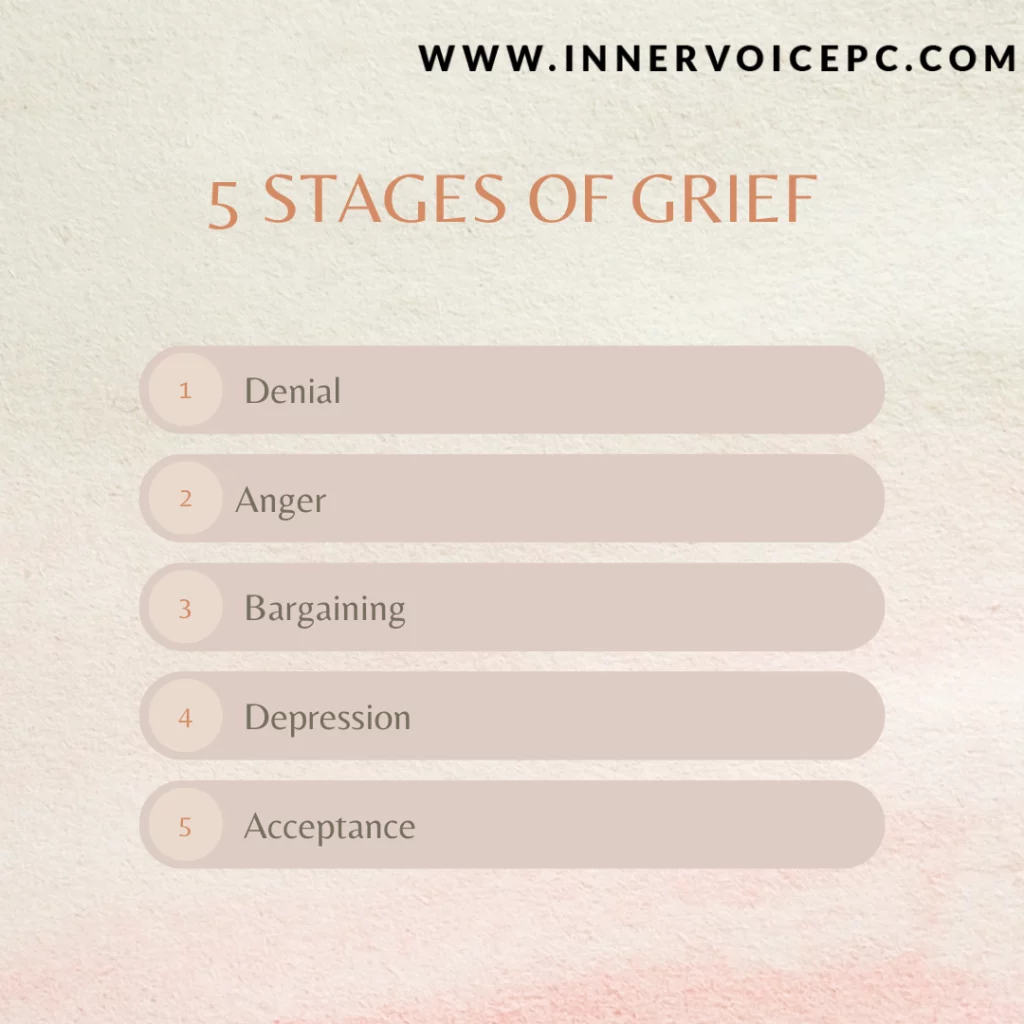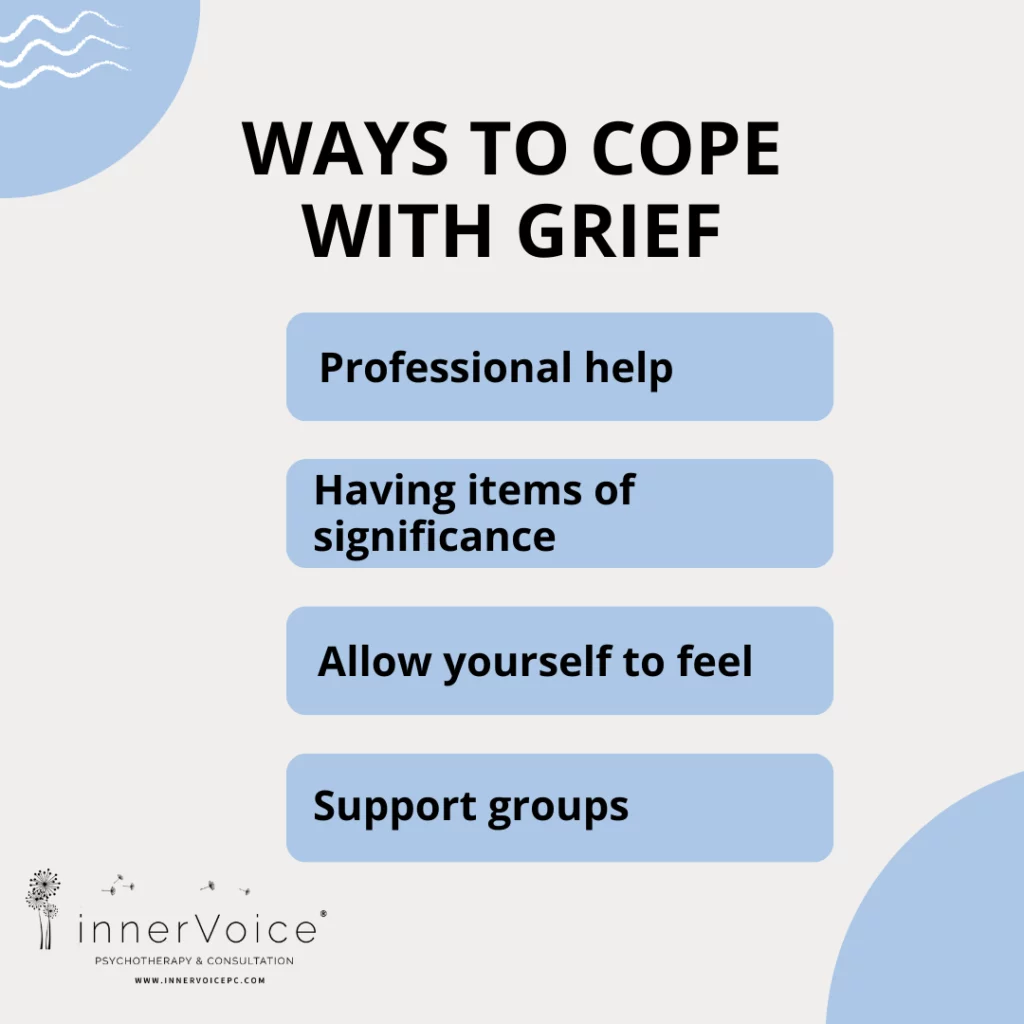
NAVIGATING GRIEF AND LOSS – WOULD GRIEF COUNSELING BE HELPFUL?
UNDERSTANDING THE IMPACT OF GRIEF AND FINDING HEALING
Grief can come in many shapes, sizes, and colors. While one person’s job loss may be vastly different from another person’s recent divorce, they both can have similar effects on our bodies. I am currently dreading the loss of my 16 year old Shih Tzu, Sophie, who has been a constant throughout many years of my own changes. In one way or another grief and loss is a part of our human experience and so it is important to understand how grief can impact our bodies and the importance of support and therapy during these difficult times.
THE MANY FACES OF GRIEF
A lifestyle change can bring up a form of grief. People in recovery or who are abstaining from substances like alcohol or even nicotine may go through a grief period. There can be a habit or ritual that gets embedded in our daily behavior, like having a drink with dinner or smoking after we eat. Behaviors, habits, rituals, or traditions can also be lost and mourned. As a part of recovery, individuals may need to let go or change how they relate to family or friends who are using substances or who have enabled them to do so. This loss can be significant.
Relationships change throughout life, and this can also cause grief. It may be the ending of a romantic relationship or even a falling out with a long time friend. These can take time to process as well.
Our health may also be something that we grieve as we age. We may have been able to run or ski as a younger adult, but as we age, our bodies lose the ability to move the way we used to. The ways we exercise or find joy in activities may abruptly change which can cause us to feel a loss of strength, physically and/or mentally, or we may feel we’ve lost a community to which we once belonged.
THE IMPACT OF GRIEF ON THE BODY

Coping with grief and loss can have a profound impact on the physical body, leading to a range of physiological responses and changes.
- Stress Response: Grief is often accompanied by significant emotional stress. When we experience stress, our bodies release stress hormones like cortisol and adrenaline as part of the “fight or flight” response. While this response is helpful in the short-term, acute stress situations, prolonged or chronic stress, as often seen in grief, can have detrimental effects on the immune system.
- Immune function: Chronic stress and grief can suppress the functioning of the immune system. This means that the body’s ability to defend against infections and diseases may be compromised. This can result in an increased susceptibility to illnesses like the common cold, flu, COVID, or other infections.
- Inflammation: Grief-related stress can lead to chronic inflammation in the body. Inflammation is the immune system’s response to injury or illness, but chronic inflammation can be harmful. It is associated with various health conditions, including autoimmune diseases, heart disease, and certain cancers.
- Sleep Disruption: Grief often disrupts sleep patterns, leading to difficulties falling asleep, staying asleep, or experiencing restorative sleep.
- Behavioral Impact: Grief can also influence behavior in ways that affect the body. For example, individuals experiencing grief may be more likely to engage in unhealthy coping mechanisms, such as excessive alcohol consumption or poor dietary choices.
- Psychological Impact: The emotional toll of grief can contribute to feelings of anxiety, depression, and hopelessness. These psychological factors can indirectly influence health, as individuals dealing with these emotions may be less likely to engage in health-promoting behaviors or seek medical care, such as grief counseling or talk therapy, when needed.
In addition, our neurological system can also be affected during grief and loss. Our brain’s chemistry under stress can change the hypothalamic pituitary adrenal axis which increases the release of cortisol, the stress hormone. When cortisol levels stay high, we may experience mood swings or show signs of anxiety, depression, or irritability.
We can also remain in a state of hypervigilance which can cause a decrease in food intake, impacting digestion, and gastrointestinal systems. These may include constipation, diarrhea, nausea, and stomach pain. We can also experience a reduced libido, changes in sleep patterns, increased blood pressure, heart rate, or cardiac output.
Years ago I experienced my own loss, and moved through my own grief process. During this time, I lost weight and was not eating normally. I also experienced changes in mood, with increased anxiety and irritability. Looking back, my body was also trying to manage this loss in its own way. It wasn’t something I could just easily control! I was releasing more cortisol which impacted my mood and the relationships around me.
CARING FOR OURSELVES DURING GRIEVING
Grief and loss can be a traumatic experience which can lead us to question our assumptive world. Who are we with with this loss? What will our world look like now? We know that trauma can impact our bodies in many different ways and grief and loss can take a toll as well.

During a period of grief and loss it is even more important to take care of ourselves physically. The self-care people tend to neglect in grief — a balanced life with activities like exercising, eating well , and getting enough sleep — are exactly what our bodies need to support good health. Additionally, practices like mindfulness, journaling, or engaging in creative activities can provide emotional relief. Self compassion is key here. In many cases, it makes sense to seek therapy, as grief therapy can often help speed up the healing process. Talking with caring friends, family members, or members of a support group can also help move the process forward through this difficult time. Getting the right support will help speed up the path forward, so it’s an important step in grieving process.
SUPPORTING OTHERS IN GRIEF
Everyone has experienced grief, but we all move through grief and loss differently, so we may not know how to show our loved ones support. Try to incorporate some of the following:
- Acknowledge the loss and do not avoid contact. Be there for them, both physically and emotionally. Offer your company, whether it’s through a visit, a phone call, or a text message. Sometimes, your mere presence can provide comfort.
- Ask how best to get in contact — some may want only a text while others may enjoy a spontaneous visit.
- Give space to the individual. While your support is crucial, respect their need for privacy and solitude at times. Grief can be overwhelming, and they may need moments of quiet reflection.
- Talk about the loss —- asking for a favorite memory, or a time that made them laugh.
- Be a good listener. Sometimes, the most important thing you can do is listen. Allow the grieving person to express their feelings, thoughts, and memories without interruption. Avoid offering solutions or advice unless they ask for it.
- Focus on the bereaved person — avoid discussing your own feelings.
Remember that the grieving process is a deeply personal experience, and everyone moves through it differently. By acknowledging the impact of grief on our bodies and seeking support when needed, we can navigate this emotional journey with resilience and strength.
SOURCES FOR GRIEF COUNSELING IN CHICAGO
If you find that grief is overwhelming and difficult to manage, or suffering from prolonged grief, consider joining local or online support groups, where you can connect with others who have experienced similar losses for emotional support. Books and websites dedicated to grief and healing can also provide valuable insights and comfort. Grief counseling provides an empathic environment and can be highly effective. There are many excellent sources for grief counseling in Chicago where a therapist can help you develop coping skills to work through the sadness, anger and guilt that so often are experienced through as part of the grieving process. Counselors can offer a safe space to discuss your concerns as well as guidance and support tailored to your specific needs.
If you are are looking for Chicago grief counseling or are struggling with any mental health issues, our therapists here at IVPC can guide and support you through grief and loss.
Loss and life transitions can be overwhelming, but you don’t have to navigate them alone. Chicago based psychotherapist Gina Powell, MA, LPC-C offers compassionate support, treatment and healing strategies as you journey through grief, loss, and the transitions of life.